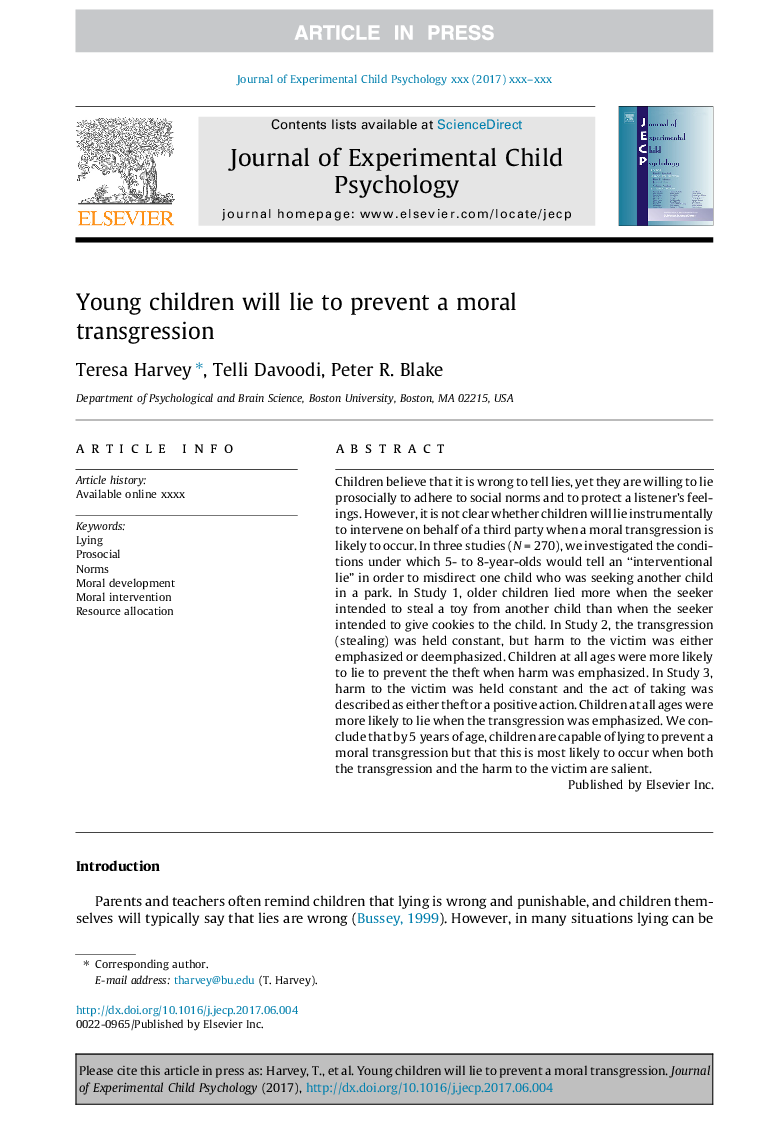| Article ID | Journal | Published Year | Pages | File Type |
|---|---|---|---|---|
| 7274330 | Journal of Experimental Child Psychology | 2018 | 15 Pages |
Abstract
Children believe that it is wrong to tell lies, yet they are willing to lie prosocially to adhere to social norms and to protect a listener's feelings. However, it is not clear whether children will lie instrumentally to intervene on behalf of a third party when a moral transgression is likely to occur. In three studies (NÂ =Â 270), we investigated the conditions under which 5- to 8-year-olds would tell an “interventional lie” in order to misdirect one child who was seeking another child in a park. In Study 1, older children lied more when the seeker intended to steal a toy from another child than when the seeker intended to give cookies to the child. In Study 2, the transgression (stealing) was held constant, but harm to the victim was either emphasized or deemphasized. Children at all ages were more likely to lie to prevent the theft when harm was emphasized. In Study 3, harm to the victim was held constant and the act of taking was described as either theft or a positive action. Children at all ages were more likely to lie when the transgression was emphasized. We conclude that by 5Â years of age, children are capable of lying to prevent a moral transgression but that this is most likely to occur when both the transgression and the harm to the victim are salient.
Related Topics
Social Sciences and Humanities
Psychology
Developmental and Educational Psychology
Authors
Teresa Harvey, Telli Davoodi, Peter R. Blake,
